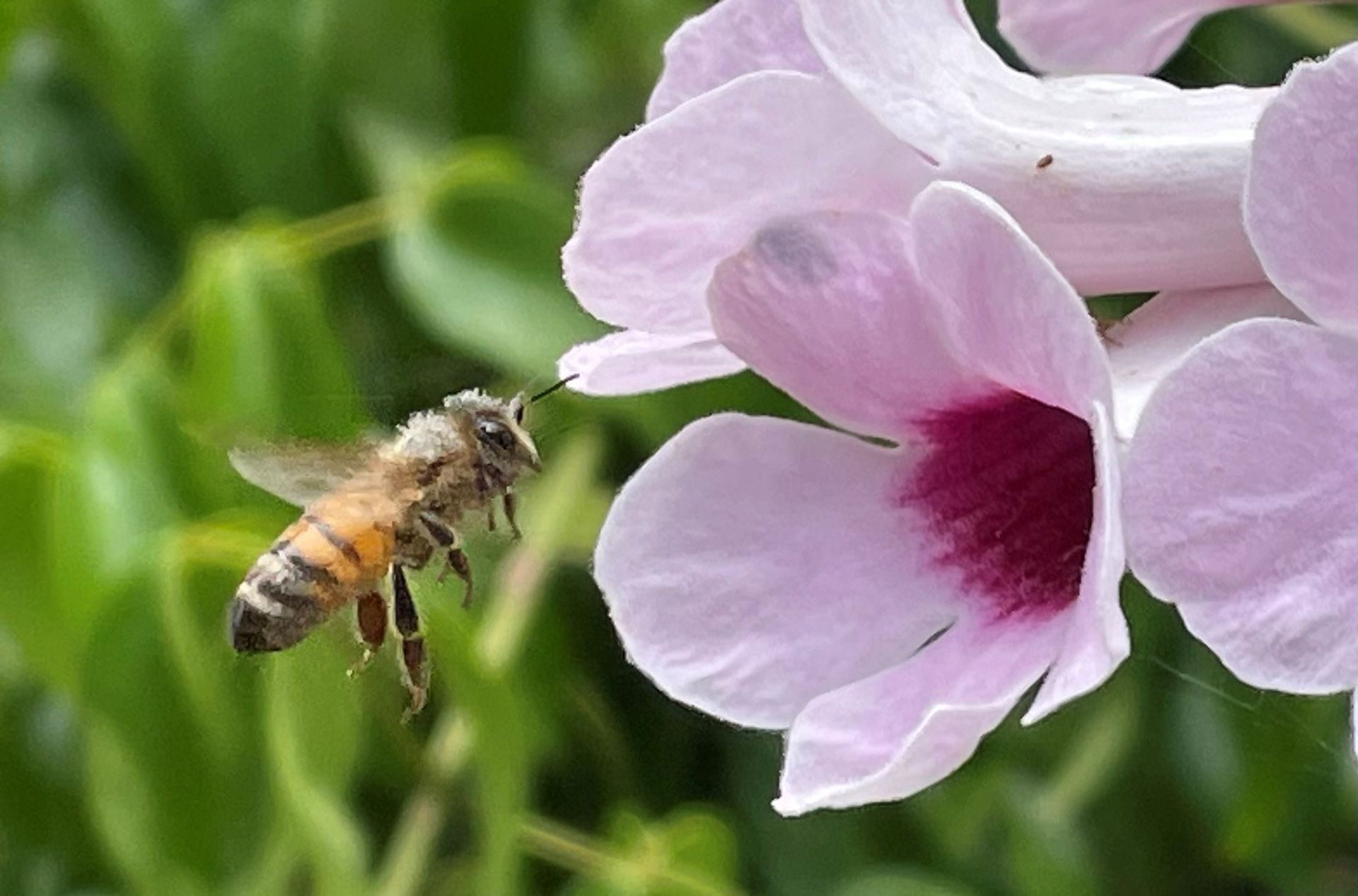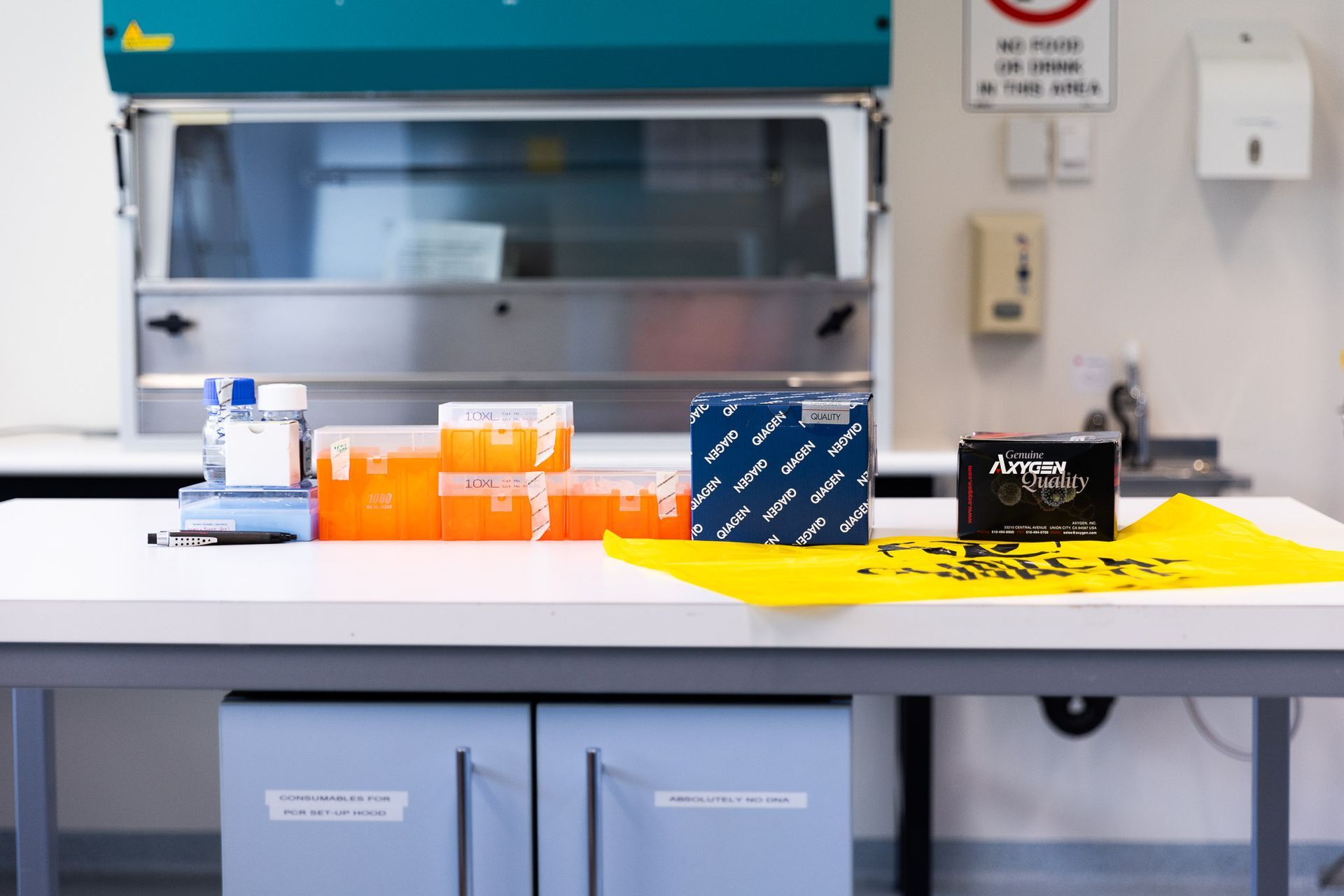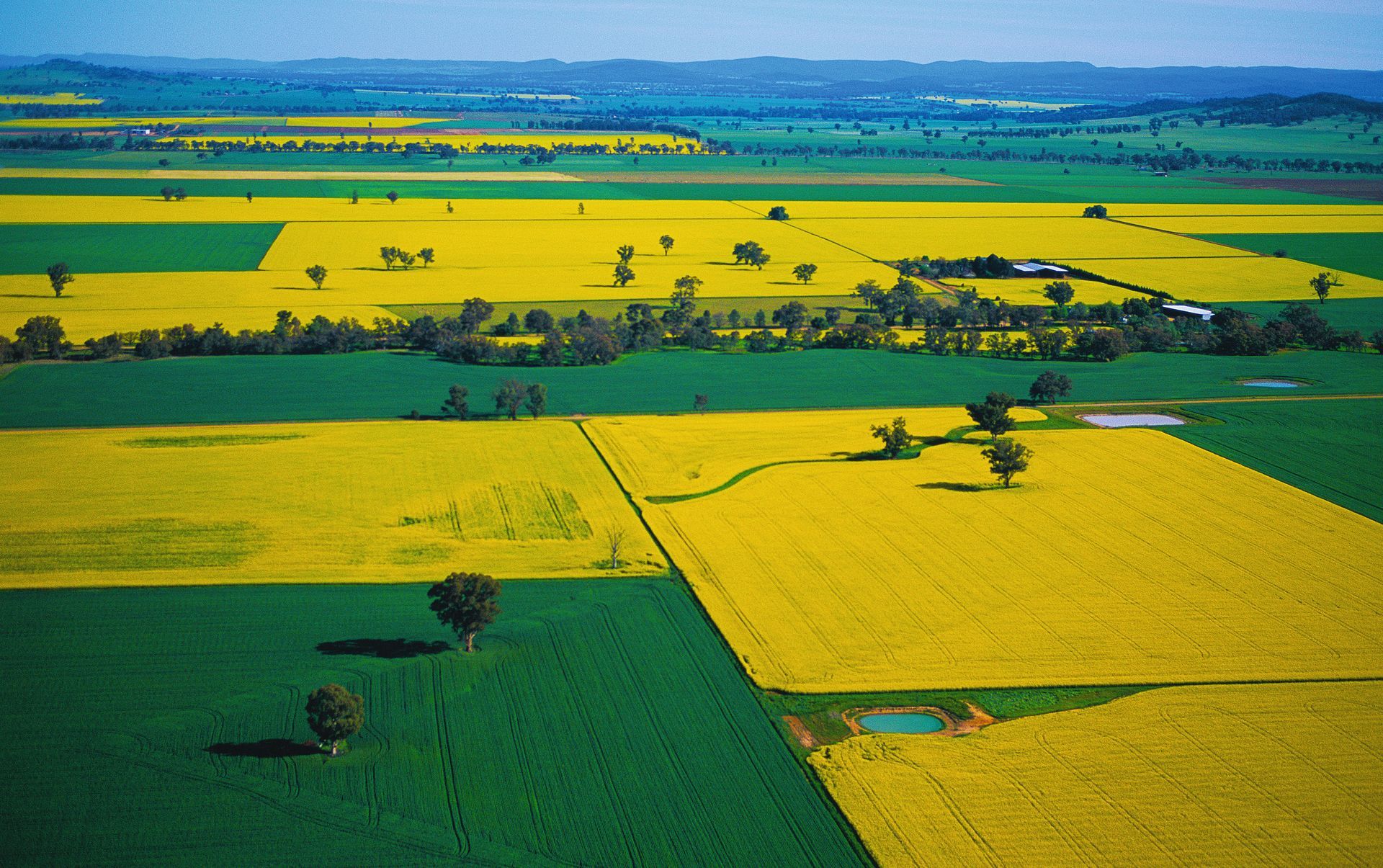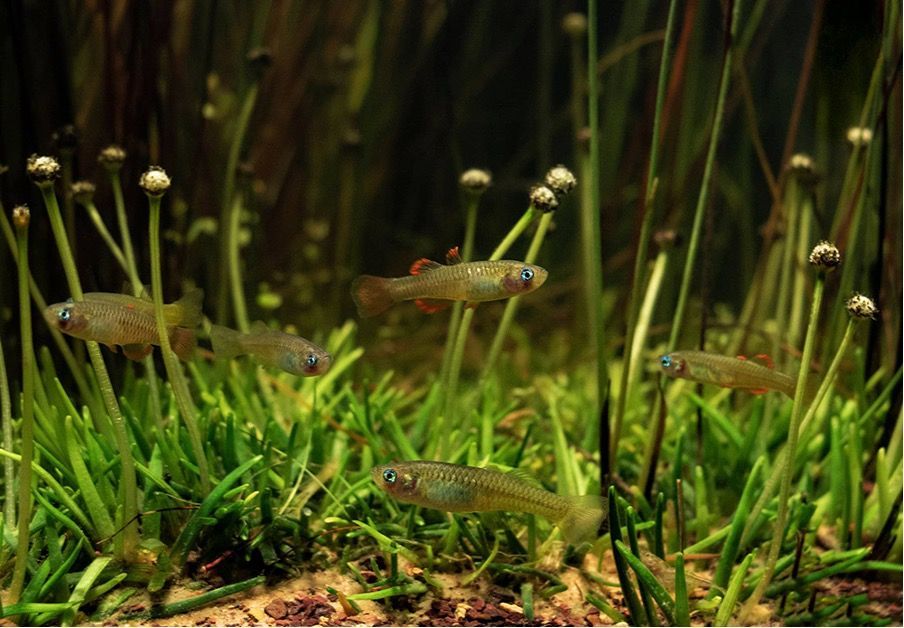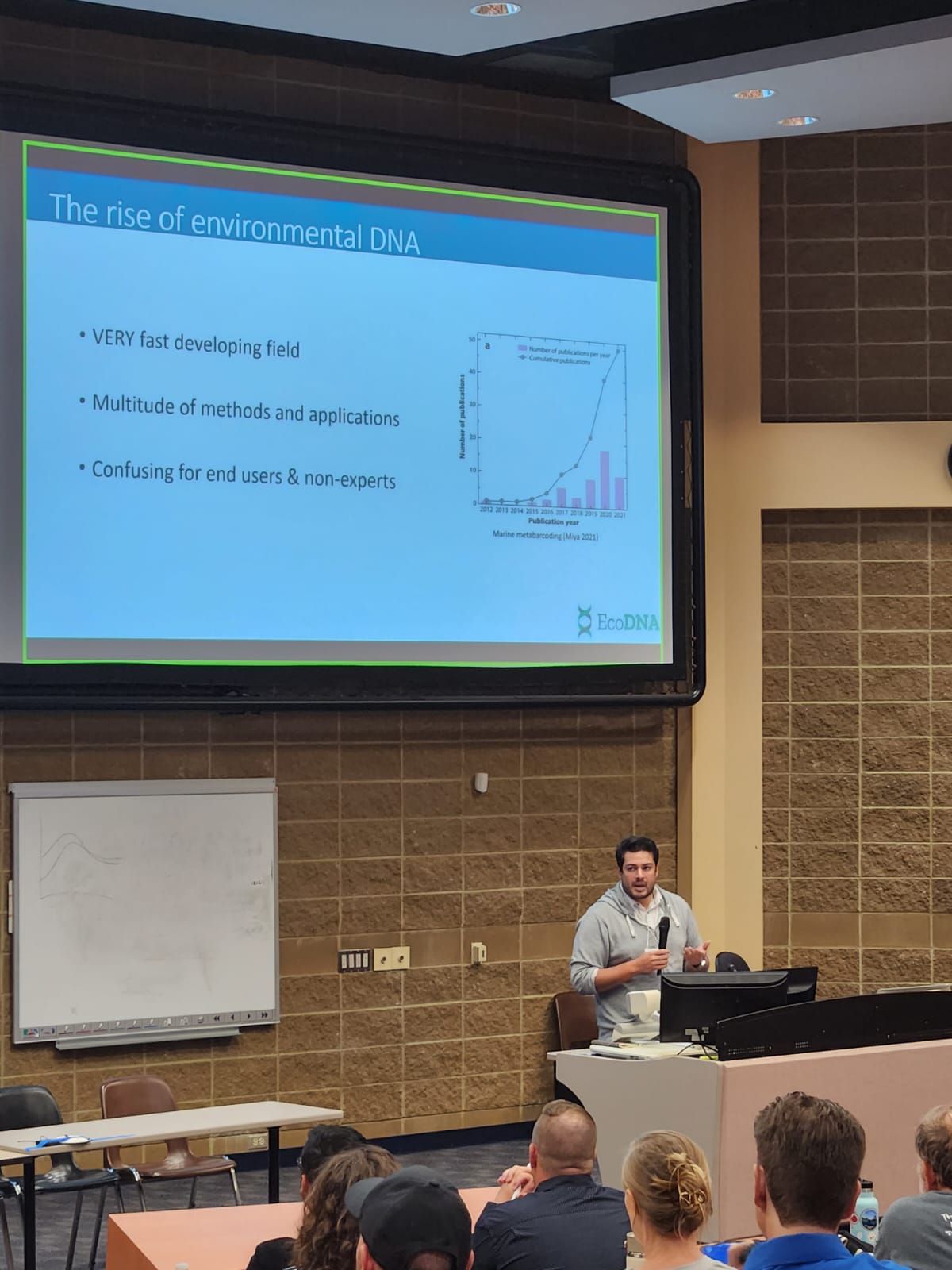Lead Researcher Recognised for Innovation
Dr Alejandro Trujillo-Gonzalez receives the Faculty of Science and Technology award for Innovation in Research.
Dr Trujillo-Gonzalez was presented with this award for spearheading innovation as a lead researcher in the EcoDNA team, and includes recognition for the deployment of a simple swab technique to detect the invasive Varroa Mite.
In other news...
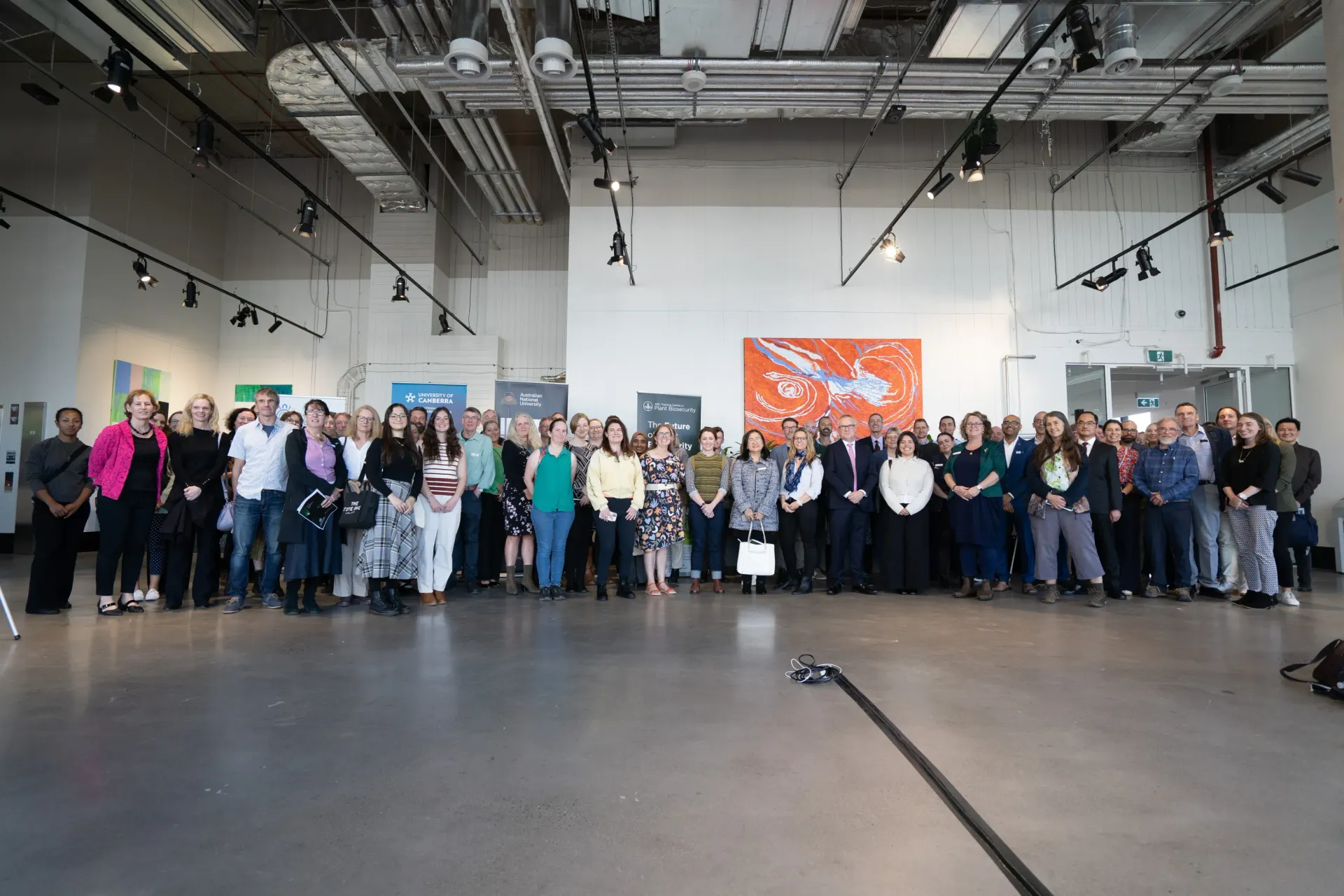
May 27, 2025
Members of the ecoDNA team attended the launch of the ARC Training Centre in Plant Biosecurity on the International Day of Plant Health, 12 May 2025. With ecoDNA's Dianne Gleeson as the Deputy Director for Research, the Training Centre will train the next generation of scientists to tackle some of Australia and the world’s biggest biosecurity challenges. This is a five-year, 10-million-dollar investment into postgraduate research training funded by the Australian Research Council (ARC), three universities and 27 partner organisations. Follow the Centre on LinkedIn
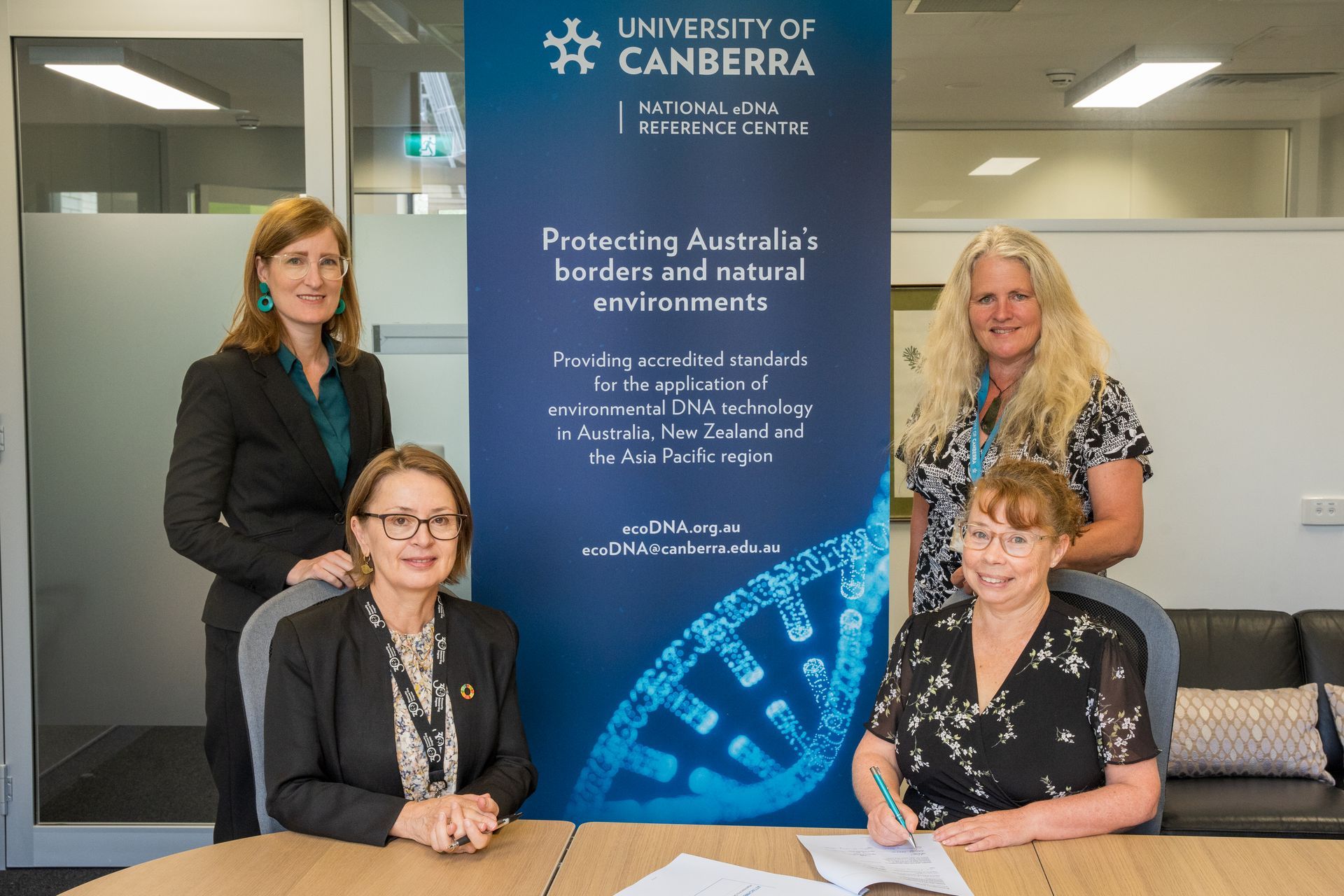
February 10, 2025
January 29, 2025 – Today, the University of Canberra and the Department of Agriculture, Fisheries and Forestry signed a three-year extension of their joint Partnering Arrangement Agreement, which initially began in January 2022 with the Department’s predecessor, the Department of Agriculture, Water and Environment. This extension builds on the substantial achievements already made and advances our shared goals, extending our collaboration through to 2029. To date, our partnership has led to the establishment of the National eDNA Reference Centre (NRC), which has made significant progress in applying eDNA technologies for biosecurity. Notably, it is the first facility in the Southern Hemisphere to gain NATA accreditation under ISO/IEC 17025. Looking ahead, we aim to drive further innovation at the NRC, and we believe that continuing this partnership will provide significant benefits in safeguarding Australia’s natural environment, agricultural industries, and public health.
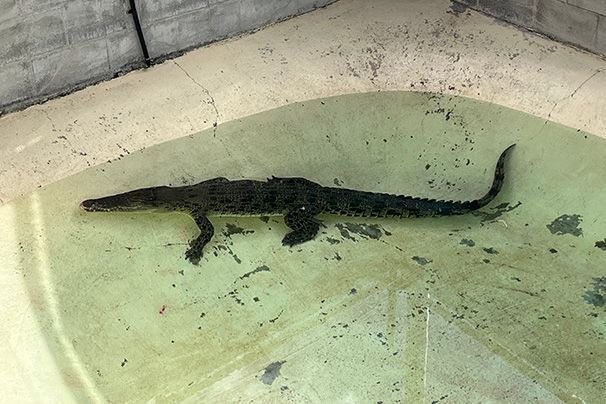
August 12, 2024
Researchers from the EcDNA team have developed a genetic test to detect saltwater crocodiles in waterways using environmental DNA (eDNA) techniques. Currently undergoing field trials, the test could be used to monitor saltwater crocodile populations in the future and even help prevent crocodile encounters. For more on this story, please follow this link: https://www.canberra.edu.au/about-uc/media/newsroom/2024/july/uc-ecology-geneticists-develop-edna-test-to-make-croc-country-safer

